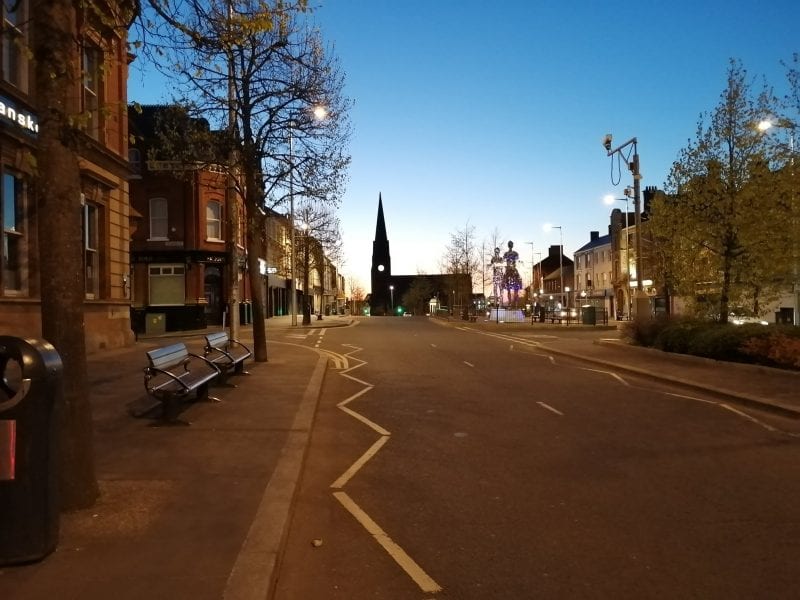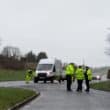
There have been nine further Covid-related deaths reported by the Department of Health today (Wednesday).
All occurred in the last 24 hours, according to the official dashboard, which has the overall total now at 680.
There were a further 840 cases reported in that timeframe, with 80 in Armagh, Banbridge and Craigavon and a further 54 in Newry, Mourne and Down.
A total of 3,722 individuals were tested.
There are 352 people now in hospital – that’s eight less than Tuesday – as a result of the virus, 44 of whom are in intensive care units – up six from yesterday. There are currently 13 ICU beds available in NI.
Sixty-two patients are in Craigavon Area Hospital today – three more than yesterday. To date, 423 patients have been discharged from the Co. Armagh hospital.
There are also nine Covid inpatients at Lurgan Hospital and eight – up one – in Daisy Hill in Newry.
Meanwhile, a further £11.6million is to be invested in our town and city centres to support them in their recovery from the impact of Covid-19.
The second tranche of the Department for Communities’ (DfC) Covid-19 Recovery Revitalisation Programme includes £5.6m from DfC, £5m from the Department for Infrastructure (DfI) and £1m from the Department of Agriculture, Environment and Rural Affairs (DAERA).
The funding is in addition to £6m already allocated in Tranche one, bringing the total to a £17.6m investment from the Executive which will assist town and city centres as they adapt to and emerge from restrictions.
Announcing the funding, Communities Minister Carál Ní Chuilín said: “The further £11.6m I am allocating to councils will enable new initiatives to be introduced, such as creating parklets, cycle paths and pedestrian walkways, carrying out small environmental improvements, and opening up vacant properties for temporary uses.
“This is in addition to essential measures such as hand sanitizer stations, screens and innovative improvements such as the provision of click and collect facilities for shoppers funded from tranche one.
“This funding was really well received and appreciated and I have no doubt this additional funding will be welcomed across our council areas.
“I fully appreciate that in this changing environment and emerging situation that businesses need our support and this is one way in which the Executive is doing that.”
Funding in this Tranche will support longer term initiatives such as the creation of cycle paths and pedestrian walkways to encourage car-free shopping, small environmental improvements and the use of open space and vacant premises to provide safe facilities.
The contribution from DfI will particularly focus on initiatives that complement the Department’s Blue/Green Infrastructure policy, by encouraging walking and cycling and reducing traffic emissions in town centres.
Minister for Infrastructure, Nichola Mallon said: “I am pleased to confirm that my Department will commit £5m to the Covid Revitalisation Programme to support the development of a number of initiatives including projects which will make it easier and more inclusive and attractive for people to access shops and services in their town or city centre by enabling them to make more short journeys by walking, wheeling and cycling rather than travelling by car.
“This will be drawn from the £20m funding I have made available for the Blue/Green Infrastructure Fund. My Department will work closely with DfC and Councils to help inform decisions on how our contribution to the Programme will be allocated and directed in the areas of active travel, connectivity and creating and enhancing green/blue spaces.”
In total, DAERA has invested £2m in this scheme to ensure that initiatives are also available to our rural towns as well as urban areas.
Minister Poots commented: “The impact of the pandemic on rural towns and villages as a retail destination has been unprecedented in recent decades. I am delighted that this additional tranche of funding is being used to deliver more medium term interventions which will provide a safe environment for visitors, shoppers and workers within villages and rural towns. It is very important that the Executive, in partnership with local councils provide assistance to businesses and to revitalise our rural settlements at this time.”



